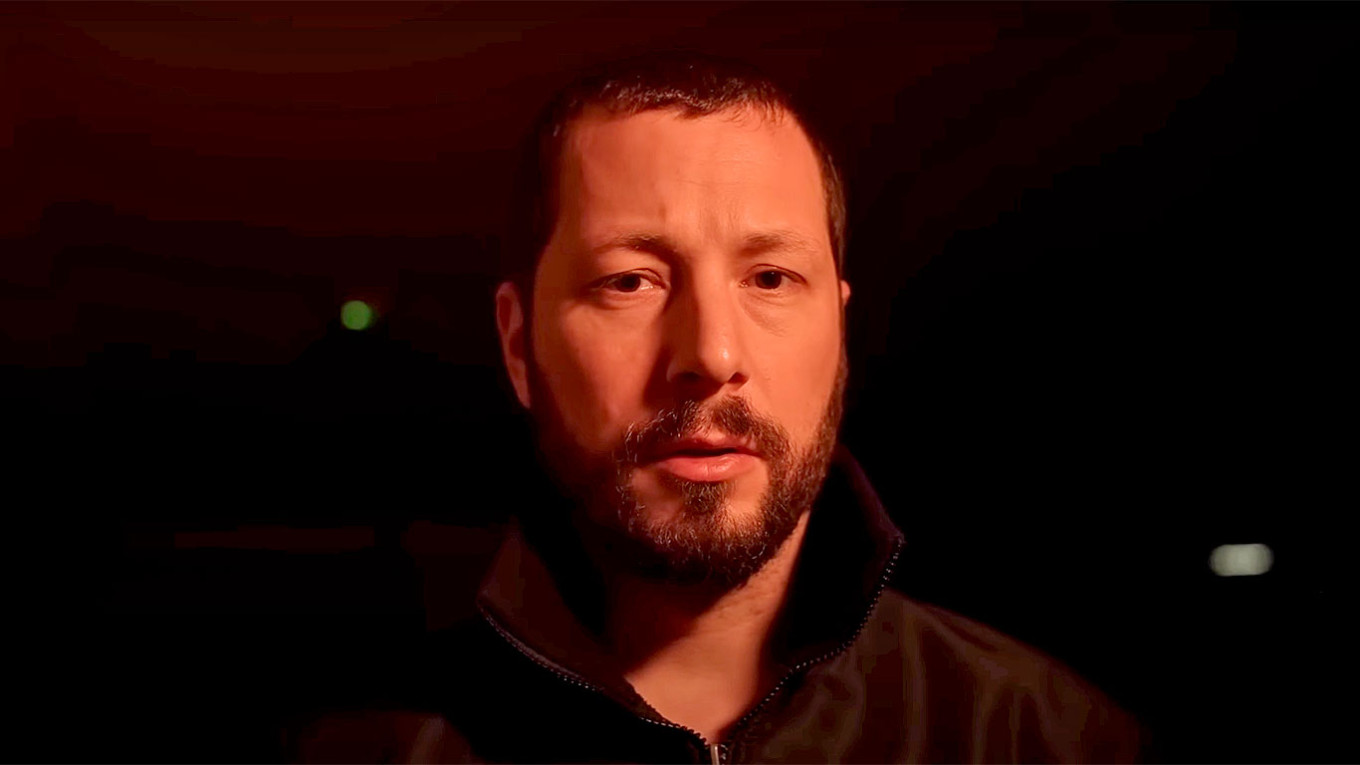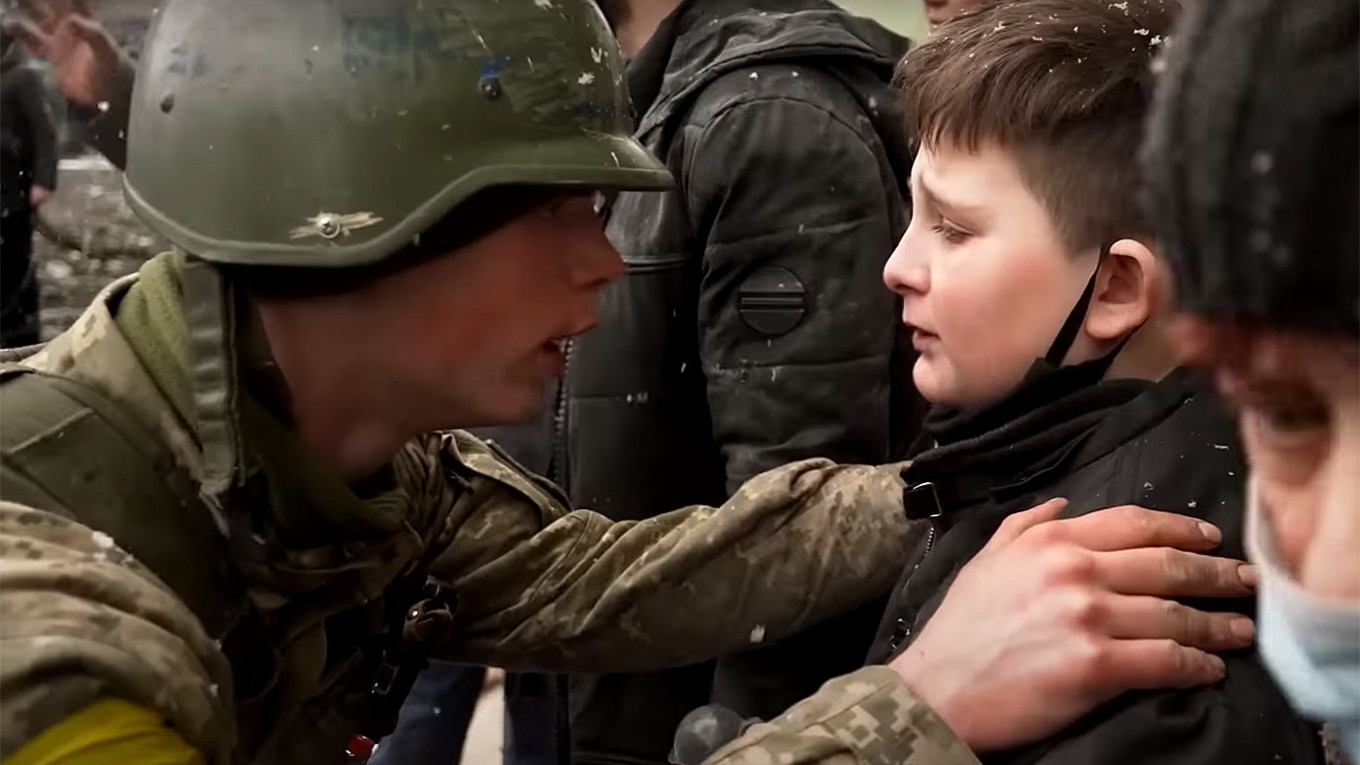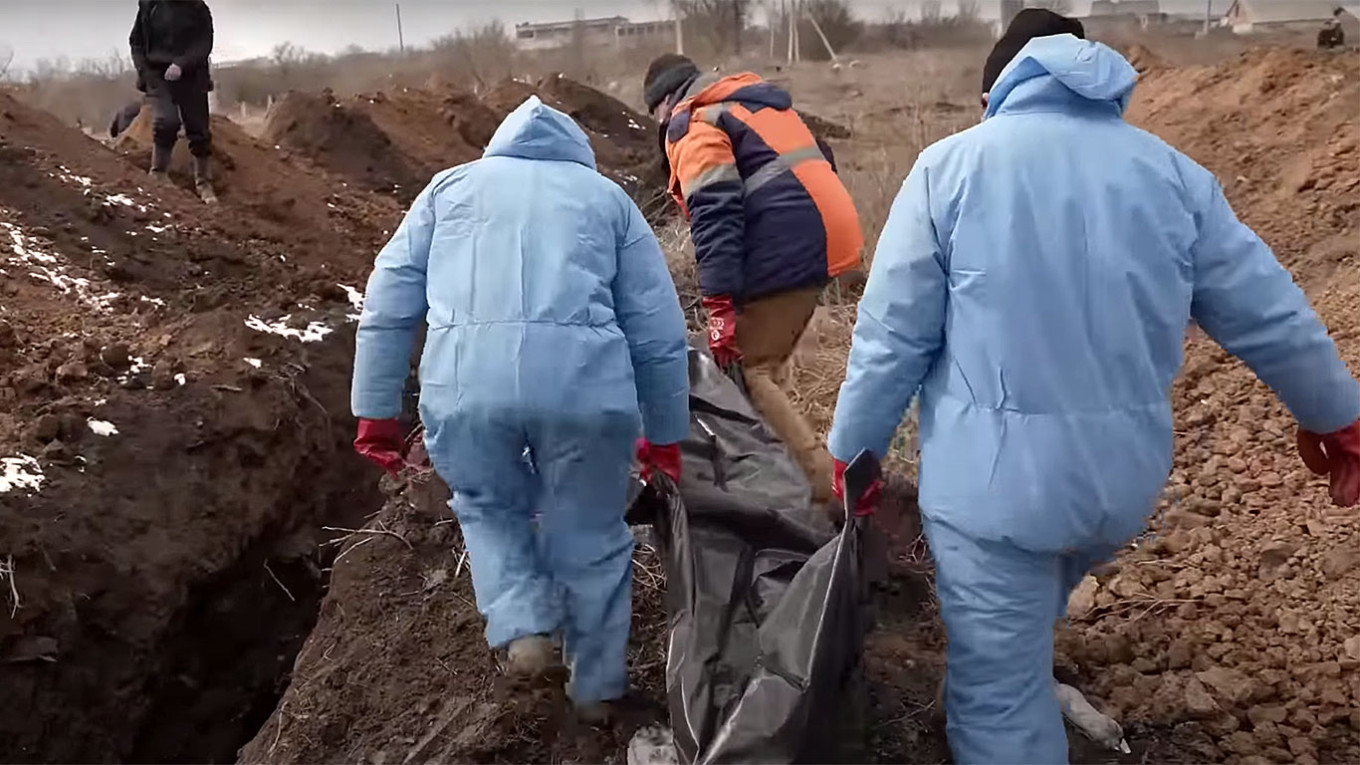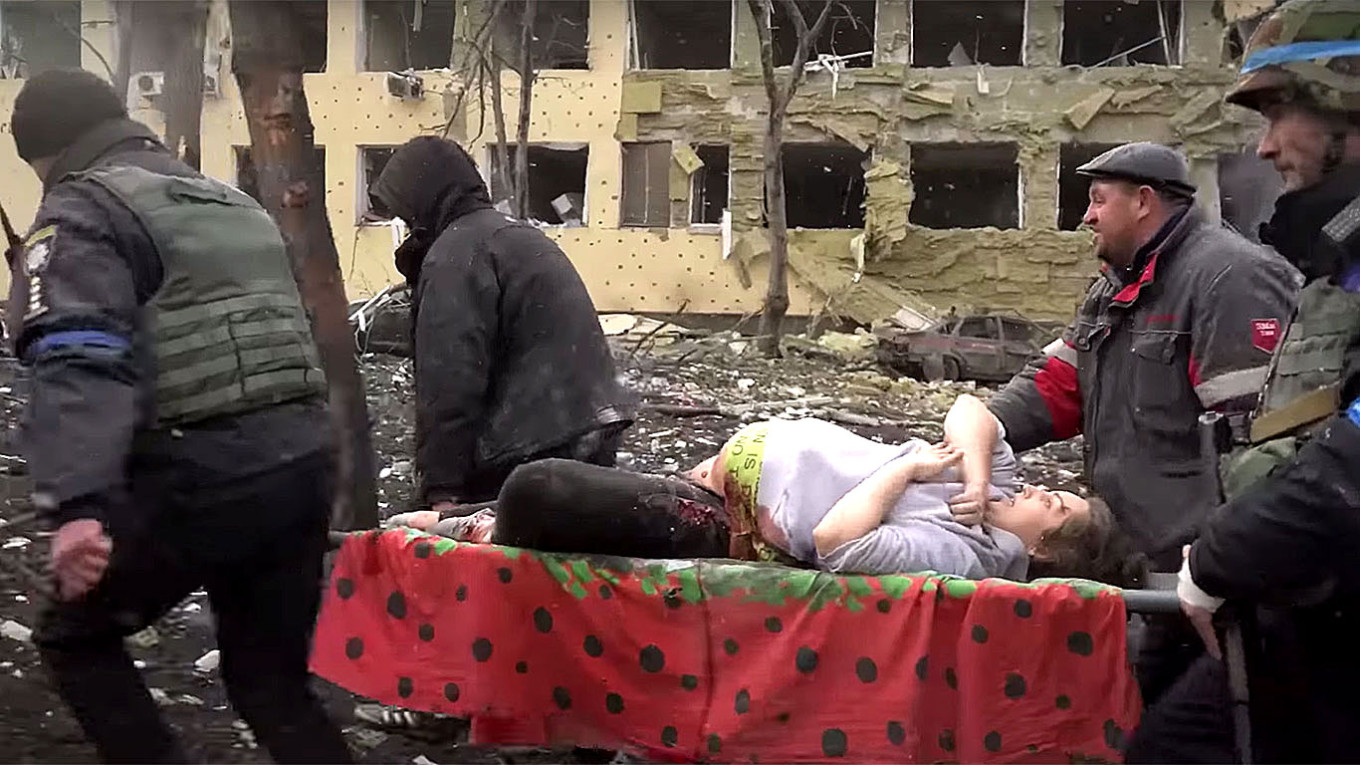SHEFFIELD—“There are a lot of land mines here.” These are the first words the audience at Sheffield’s Documentary Film Festival hear from Mstyslav Chernov, the director of “20 Days in Mariupol.” The organizers of the U.K. premiere in Sheffield had announced that he couldn’t join us in person but would introduce the film by video link.
All three screenings of the film sold out. Chernov appears, large on the cinema screen, in a helmet and bulletproof vest emblazoned with the word "Press." He walks away from the vehicle holding his camera phone before his face and says a few words about the film. His voice wavers and he apologizes for the tears gathering in his eyes. “I always get emotional when I talk about Mariupol.”
The appearance of Chernov on the frontier of the Ukrainian counter-offensive sends a jolt through the hall. The audience was clearly not ready to face the visceral reality of war.
This initial discomfort stays with the audience throughout the 94 minutes we spend in Mariupol with Chernov and his colleague Evgeniy Maloletka.
“20 Days in Mariupol” is a unique chronicle of the Russian invasion of the city, captured by the only journalists remaining on the ground. Organized day by day with some of Chernov’s explanatory commentary spoken over the footage, it is a chilling diary of destruction.

Mariupol sits on the Sea of Azov in Ukraine’s Donetsk oblast. Its large port and its strategic location, roughly sixty kilometers from the Russian border, made it an obvious target for the invasion. Mariupol had already been attacked in 2014 after the declaration of the separatist Donetsk Peoples’ Republic, and it had withstood a rocket attack in 2015.
Chernov went to Mariupol on the day the artillery bombardment there began. On Day 1, we follow his visit to a Ukrainian air base which had suffered severe damage.
The rest of the city seems tense with horror and disbelief. An elderly woman is weeping on the street, unsure where to go. Chernov reassures her that her house is safe, the military would not target civilians.
By Day 3 it is obvious that this had been a hopeful lie. Chernov visits a local hospital and captures the deaths of a teenager who was playing on the street and an eighteen-month-old baby called Kiril. These are difficult scenes to watch. Audience members are in tears; some can’t look at the screen. Kiril does not respond to resuscitation. We watch him die. The doctors are crying together with his mother.
“This is painful to watch,” Chernov says over the footage. “It should be painful to watch.”
Still, the people of Mariupol stayed. The city’s pre-war population was about 480,000. Chernov estimates that only a quarter of the population left when the invasion began.

Day 9. The city is now suffering a shortage of medical supplies, food and water. There is no internet or telephone communication. Some residents start looting shops. A teenager pushes an office chair stacked with boxes of electronics. A woman is scolding people trying to break into her beauty store. But most people stick together, shuffling in and out of shelters, sharing supplies and support.
“A doctor said to me that war is like an X-ray,” Chernov narrates. “It reveals good people to be better, and bad people to be worse.”
On Day 10, a humanitarian corridor fails to open. By Day 14, all the morgues are full and mass graves are being filled with bodies in black bags. Chernov asks one of the men carrying the bodies what he feels.
“I don’t know what to feel at this moment,” he says, briefly startled out of his numbness.
Elsewhere, too, it is clear that the citizens of Mariupol have become more and more desensitized to the war. Chernov meets a man called Alexander, pushing a cart along a major road in the city center as we hear bombs fall nearby. Asked where he is going, the man says he is taking all his things to his former wife’s house because his house is gone. He has been walking for four hours. “Aren’t you afraid?” Chernov asks.
“They shoot, I walk. What are you going to do?” he replies matter-of-factly as he continues to push his cart down the road.

On Day 17, the Russians bomb a maternity hospital, killing a number of pregnant women. A young mother holds a toddler in her arms outside the ruins as others are carried out on stretchers. Chernov asks her: “How are you?” “Me? I am OK. I am good.” Her words don’t mean what they ought to mean.
Over the next few days, Chernov ends up behind enemy lines in one of the last hospitals standing in Mariupol. He films Russian tanks with a Z on them shooting at buildings right near him. This is the first time the enemy is more than a faceless bomb dropping from the sky.
With the help of Volodymyr, a policeman, Chernov and Maloletka are evacuated by a special unit. They run across the occupied city, panting. The camera shakes in Chernov’s hands.
On Day 20, a humanitarian corridor is opened briefly and they leave. The end is abrupt and unforgiving. The invasion is far from over, but the Red Cross-marked vehicles drive away.
“20 Days in Mariupol” is not simply a chronicle of the invasion. It is also a meditation on the power of journalism. Chernov’s footage is interspersed with international media coverage of his material. His footage of the maternity hospital rocks the world. Russia was concerned enough to begin a misinformation campaign to discredit it.
Yet Chernov wavers in his faith about the value of his work. He has been reporting on the Russia-Ukraine war for nearly ten years. He has captured suffering upon suffering and, in his view, very little has changed.
Others in Mariupol disagreed. Volodymyr, the policeman who saved Chernov, was adamant that the footage would change the war. And perhaps it did: the humanitarian corridor which Russia had blocked for over two weeks opened only a few days after Chernov showed the maternity hospital bombing to the world.
In the opening shots of the film Chernov says: “Wars don’t start with explosions. They start with silence.” Silence is also what Chernov’s film achieves.
Mariupol fell on Day 86. The audience silently files out of the cinema. A heaviness hangs in the air, as the crowd comes to terms with the trauma of what they have seen and the stories of the 66 days of Mariupol’s siege that remain untold.
“20 Days in Mariupol” will be screened at a number of festivals across the United States and Canada this July. It is distributed by PBS.
A Message from The Moscow Times:
Dear readers,
We are facing unprecedented challenges. Russia's Prosecutor General's Office has designated The Moscow Times as an "undesirable" organization, criminalizing our work and putting our staff at risk of prosecution. This follows our earlier unjust labeling as a "foreign agent."
These actions are direct attempts to silence independent journalism in Russia. The authorities claim our work "discredits the decisions of the Russian leadership." We see things differently: we strive to provide accurate, unbiased reporting on Russia.
We, the journalists of The Moscow Times, refuse to be silenced. But to continue our work, we need your help.
Your support, no matter how small, makes a world of difference. If you can, please support us monthly starting from just $2. It's quick to set up, and every contribution makes a significant impact.
By supporting The Moscow Times, you're defending open, independent journalism in the face of repression. Thank you for standing with us.
Remind me later.







